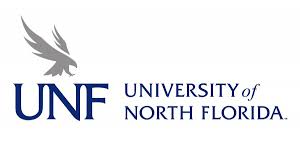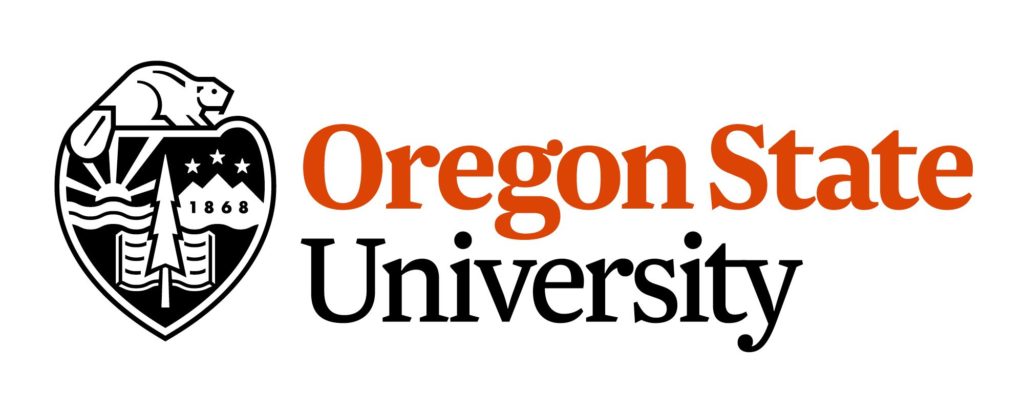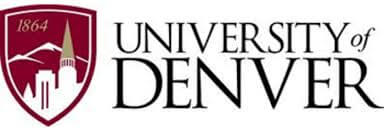

There is an increasing interest in animal-assisted therapy (AAT) in counseling settings. If you are passionate about helping people and love animals, then animal-assisted therapy could be the right path for you. Some schools offer a master’s degree in counseling with animal-assisted therapy (AAT) as a concentration or specialization. The curriculum explores the unique characteristics of human-pet relationships. These programs train students to base their treatment on this attachment theory.
How does animal-assisted therapy (AAT) work?
Research shows that AAT has moderate effects in improving outcomes in areas like:
- Autism-spectrum symptoms
- Medical difficulties
- Behavioral problems
- Emotional well-being
- Anxiety
- Post-traumatic stress disorder (PTSD)
Animal-assisted therapy allows therapists and counselors to help people with a multitude of goals. They provide support for the above conditions and also help develop social skills and improve self-esteem. The unconditional nature of an animal’s love acts as the biggest healer. AAT practitioners work in various clinical settings, from psychiatric hospitals, clinics to nursing homes. They work alongside animals like dogs and horses. They aim to help develop adaptive patterns of attachment and healthier modes of relating to others.
In this ranking, we have listed the schools that offer animal-assisted therapy as a specialization or concentration as a part of their graduate programs. The main programs range from Masters in Applied Behavior, Counseling to Social Work, among others. The use of animal-assisted therapy is a common thread here. They are in demand since few schools offer this specialization. We have ranked them per their affordability. We have also looked at the accreditations and curriculum.
Methodology:
Tuition
- Net Price Below $10,000: 4 points
- Net Price Below $15,000: 3 points
- Net Price Below $20,000: 2 points
- Net Price Below $25,000: 1 point
Student to Faculty Ratio
- Less than 20:1: 1 point
- Less than 15: 1: 2 points
- Less than 10: 1: 3 points
Return on Investment (ROI)
- Top 500: 1 point
- Top 300: 2 points
- Top 150: 3 points
Student Support Network (faculty mentors/advisors, writing/technology support, etc.)— 1 point per item
Concentrations/Specializations – 1 point per item
Accreditation (School-Wide and Program-Specific) – 1 point per item
“Wow” Factor – 1 point (anything that would mark a program as unique. Special qualities that make a program “stand out from the crowd”)
#10 Bucknell University
Lewisburg, PA

MS in Animal Behavior
Visit Website
Points: 6
Bucknell University offers a master’s degree in Animal Behavior. The graduate study program is meant for students interested in pursuing a Ph.D. The curriculum amplifies their expertise and knowledge in animal-related careers and counseling. The program is administered by the departments of biology and psychology. Key features:
- It requires two years of full-time work
- A minimum of eight courses approved by the adviser
- In-residence coursework in biology and psychology
- Continuing research and completion of a research thesis
Graduates go on to work in laboratory research, field research, or conservation biology.
Fast facts:
- Offered by: College of Arts & Sciences
- Format: Campus-based
- Accreditation: Middle States Commission on Higher Education
- Tuition per year: $25,412
#9 University of North Florida
Jacksonville, FL

MS in Clinical Mental Health Counseling
Visit Website
Points: 7
The University of North Florida’s Master of Science, Clinical Mental Health Counseling is a versatile program. Students can opt for “Animal Assisted Therapy in Counseling: Theory and Practice” as their elective or thesis topic. The program highlights:
- Meets the educational requirements for licensure in the state of Florida
- It is practitioner-oriented and requires a field-based experience.
- Provides comprehensive training for practice in various mental health settings
- Provides students with an intellectually stimulating and supportive environment
- It is a two-year, full-time program
Graduates become leaders in their field and deliver effective mental health services.
Fast facts:
- 60 credits
- Offered through: Brooks College of Health
- Format: Campus-based (some non-clinical courses have online options)
- Accreditation: CACREP; Southern Association of Colleges and Schools Commission on Colleges
- Tuition per credit: $1,222
#8 University of Washington
Seattle, WA

M.S. in Psychology
Visit Website
Points: 8
University of Washington’s Master of Psychology is a unique and interdisciplinary graduate training program. It offers an Animal Behavior Program option that integrates psychological and zoological approaches to the study of animal behavior and behavioral ecology. Key features:
- Training emphasizes the development of a broad perspective on the study of behavior as well as expertise in areas of special interest
- Research opportunities involve field, laboratory, and zoo environments
- Participants can take advantage of a large interdepartmental network of resources
- Research areas include animal communication, development, primate behavior, evolutionary psychology, behavioral neuroscience, behavioral genetics and social behavior
The program leads to the Ph.D. in Psychology (Animal Behavior).
Fast facts:
- 36 credits
- Offered by: Department of Psychology
- Format: Campus-based
- Accreditation: Northwest Commission on Colleges and Universities (NWCCU)
- Tuition per year: $19,684
#7 Canisius College
Buffalo, NY

Online MS in Anthrozoology
Visit Website
Points: 9
Featured Programs
Canisius College offers a unique Online Master of Science degree in Anthrozoology. It is designed for students passionate about studying humanity’s relationships with other animal species. Students explore human-nonhuman interactions in a variety of contexts like:
- Relationships that exist between people and companion animals
- Humans’ interactions with wildlife
- Roles of zoos and sanctuaries
- Policies and laws related to nonhuman animals
- Environmental and conservation issues
Students gain a broad knowledge of anthrozoological issues and also specialize in relevant areas.
Fast facts:
- 36 credits
- Offered through: College of Arts & Sciences
- Format: Online/Hybrid
- Accreditation: Approved by the New York State Department of Education; Middle States Commission on Higher Education
- Tuition per credit: $840
#6 University of California, Davis
Davis, CA

M.S. program in Animal Behavior
Visit Website
Points: 10
University of California, Davis, offers a Master of Science in Animal Behavior as a pathway to PH.D. The program provides in-depth knowledge of:
- Animal science
- Psychology
- Biological anthropology
- Ecology
- Wildlife biology
- Physiology
- Veterinary science
- Zoology
Students also gain qualitative and quantitative skills necessary for professional research. They are also trained to teach in the adaptive and evolutionary bases of animal behavior. They have to complete 20 units of core courses and 16 units of electives to complete the program.
Fast facts:
- 36 credits
- Format: Campus-based
- Accreditation: Commission for Senior Colleges and Universities of the Western Association of Schools and Colleges (WASC)
- Tuition per year: $11,442
#5 Oregon State University
Corvallis, OR

MS in Animal Sciences
Visit Website
Points: 11
Oregon State University offers a Master of Science in Animal Sciences. It provides several concentration options, including Animal Behavior. The courses align with the accepted curriculum for animal behaviorists. Topics include:
- Animal Behavior & Cognition
- Service and therapy with animals
- Applied Animal Behavior
- Topics in Animal Learning
- General Psychology
- Brain and Behavior
- Cognition
- Cognitive Development
Students gain the necessary skills for various industry positions that include a behavior management component. The program provides a solid foundation for those working towards related certifications.
Fast facts:
- 49 credits
- Offered by: College of Agricultural Sciences
- Format: Campus-based
- Accreditation: Northwest Commission on Colleges and Universities (NWCCU)
- Tuition per year: $15,267
#4 Michigan State University
East Lansing, MI

MA, Sociology
Visit Website
Points: 12
Michigan State University’s Master of Arts in Sociology has the option of specializations or certificate programs. A popular choice is the Graduate Specialization in Animal Studies: Social Science and Humanities Perspectives. It provides students with basic knowledge of relationships between humans and other animals. We gain an understanding of how we are all linked together in a fragile biosphere. Courses include:
- Research Practicum in Animal Studies
- Animals and Social Transformations
- Animal Welfare
- Contemporary Issues in Animal-Human Relationships
- Global Risks, Conservation and Criminology
- Human Dimensions Research in Fisheries and Wildlife
- Ecosystem Ecology
Any student enrolled in master’s or doctoral degree programs at the school can opt for this graduate specialization.
Fast facts:
- 30 credits
- Offered through: College of Social Science
- Format: Campus-based
- Accreditation: Higher Learning Commission
- Tuition per credit: $482
#3 University of Denver
Denver, CO

MSW-Certificate in AAT
Visit Website
Points: 13
The University of Denver offers a Master of Social Work with an optional certificate program in Animal-Assisted Social Work. MSW students can complete the certificate and master’s program at the same time. Key features of the program:
- It explores social justice from the perspective of humans, animals, and the environment.
- It adds three specialized elective courses to the curriculum during the concentration year
- It includes field internships that examine the critical human, animal, and environmental connections
Graduates prepare to combine and consider humans, animals, and the environment in practice settings. They work in therapeutic programs, social work agencies, animal shelters, and sanctuaries.
Fast facts:
- 75 credits
- Offered through: Graduate School of Social Work
- Format: Campus-based
- Accreditation: CSWE; Higher Learning Commission
- Tuition per year: $17,086
#2 Jacksonville State University
Jacksonville, AL

M.S. in Applied Behavior Analysis
Visit Website
Points: 14
Jacksonville State University offers a Master of Science in Applied Behavior Analysis. The program explores functional relations between animal and human behavior and environmental events. The main areas of the program are:
- Experimental analysis of behavior (EAB). It teaches students about basic functional relations between environmental events and behavior,
- Applied behavior analysis (ABA). It trains students to apply those basic behavioral principles to human populations.
- Field Experience. Businesses offering ABA services in the area often hire students and provide BCBA supervision
- Hands-on experience. Available through the animal and human research facilities and local practicum sites
Graduates are prepared to be board certified behavior analysts. They practice through instruction, training, and research in the analysis of behavior.
Fast facts:
- 39 credits
- Offered through: School of Human Services and Social Sciences
- Format: Campus-based/Hybrid
- Accreditation: ABAI; Southern Association of Colleges and Schools Commission on Colleges
- Tuition per credit: $400
#1 American College of Applied Science
Crescent City, FL

MS CABAC Clinical Degree
Visit Website
Points: 15
American College of Applied Science offers a Master of Science in Companion Animal Behavior Analysis and Counseling. The unique program employs a scientist/practitioner model. It closely follows the applied behavior analysis (ABA) and evidence-based practice principles. The curriculum includes:
- Companion animal behavior and behavior change including learned and heritable behavior
- Species-specific behavior
- Functional behavioral assessment
- Analysis of behavior problems
- Measurement and graphing of behavior using quantifiable methodologies
- Development of positive behavioral intervention plans
- Psychopharmacological intervention
It uses a blended-learning course delivery model. It consists of Internet-based courses, 5-day residency lab courses with animals, real-world practicum, and a capstone.
Fast facts:
- 51 credits
- Format: Blended
- Accreditation: Licensed by the Florida Department of Education, Commission for Independent Education; Middle States Commission on Higher Education (MSCHE)
- Tuition per credit: $375